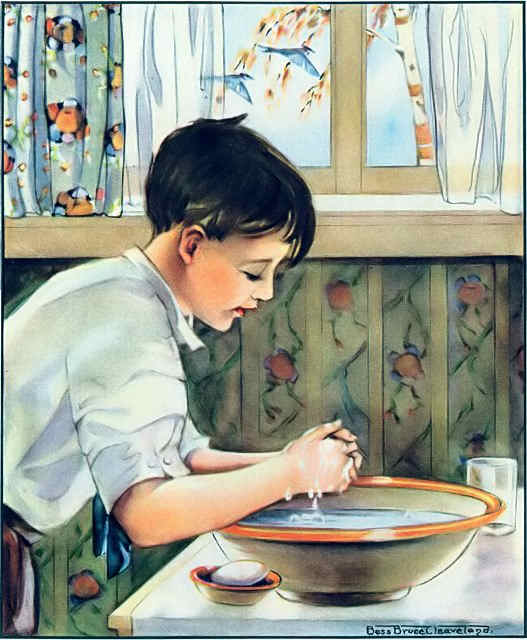
- 오늘의 예배

- 역사순 120일 성경일독표

- KHRV 개역한글성경

- WEB 영어성경
- NIV 영어성경
- KJV 영어성경
- 한글성경-개역개정판
- 영어성경 년간일독표
- 맥케인성경일독표
- 한치호성경일독표
-----Readed_count
-----Update
Mobile Bible, Mobile KHRV+KJV, Mobile iWorship, Bible Quiz,
KHRV+KJV+Mattew Henry Commentary

Job's troubles. (1-6)
Job expostulates with God. (7-16)
He begs release. (17-21)
Verses 1-6 Job here excuses what he could not justify, his desire of death. Observe man's present place: he is upon earth. He is yet on earth, not in hell. Is there not a time appointed for his abode here? yes, certainly, and the appointment is made by Him who made us and sent us here. During that, man's life is a warfare, and as day-labourers, who have the work of the day to do in its day, and must make up their account at night. Job had as much reason, he thought, to wish for death, as a poor servant that is tired with his work, has to wish for the shadows of the evening, when he shall go to rest. The sleep of the labouring man is sweet; nor can any rich man take so much satisfaction in his wealth, as the hireling in his day's wages. The comparison is plain; hear his complaint: His days were useless, and had long been so; but when we are not able to work for God, if we sit still quietly for him, we shall be accepted. His nights were restless. Whatever is grievous, it is good to see it appointed for us, and as designed for some holy end. When we have comfortable nights, we must see them also appointed to us, and be thankful for them. His body was noisome. See what vile bodies we have. His life was hastening apace. While we are living, every day, like the shuttle, leaves a thread behind: many weave the spider's web, which will fail, ch. 8:14. But if, while we live, we live unto the Lord, in works of faith and labours of love, we shall have the benefit, for every man shall reap as he sowed, and wear as he wove.
Verses 17-21 Job reasons with God concerning his dealings with man. But in the midst of this discourse, Job seems to have lifted up his thoughts to God with some faith and hope. Observe the concern he is in about his sins. The best men have to complain of sin; and the better they are, the more they will complain of it. God is the Preserver of our lives, and the Saviour of the souls of all that believe; but probably Job meant the Observer of men, whose eyes are upon the ways and hearts of all men. We can hide nothing from Him; let us plead guilty before his throne of grace, that we may not be condemned at his judgment-seat. Job maintained, against his friends, that he was not a hypocrite, not a wicked man, yet he owns to his God, that he had sinned. The best must so acknowledge, before the Lord. He seriously inquires how he might be at peace with God, and earnestly begs forgiveness of his sins. He means more than the removing of his outward trouble, and is earnest for the return of God's favour. Wherever the Lord removes the guilt of sin, he breaks the power of sin. To strengthen his prayer for pardon, Job pleads the prospect he had of dying quickly. If my sins be not pardoned while I live, I am lost and undone for ever. How wretched is sinful man without a knowledge of the Saviour!
욥 7:17 사람이 무엇이관대 주께서 크게 여기사 그에게 마음을 두시고
욥 7:18 아침마다 권징하시며 분초마다 시험하시나이까
욥 7:19 주께서 내게서 눈을 돌이키지 아니하시며 나의 침 삼킬 동안도 나를 놓지 아니하시기를 어느 때까지 하시리이까
욥 7:20 사람을 감찰하시는 자여 내가 범죄하였은들 주께 무슨 해가 되오리이까 어찌하여 나로 과녁을 삼으셔서 스스로 무거운 짐이 되게하셨나이까
욥 7:21 주께서 어찌하여 내 허물을 사하여 주지 아니하시며 내 죄악을 제하여 버리지 아니 하시나이까 내가 이제 흙에 누우리 니 주께서나를 부지런히 찾으실지라도 내가 있지 아니하리이다
BIBLE - WEB, KJV, ASV&Quiz, NIV,
개역한글KHRV( 120일1독, 1년1독, 권별, 성경통독 )
STUDY - 구절(WESLEY), 단락(MATTHEW), 테마별, 읽기(Wayne), 소요리, 대요리 문답, 신앙고백WCF
Dictionary - Chapter, OT구약, NT신약,
| 1창세기[Genesis] 2출애굽기[Exodus] 3레위기[Leviticus] 4민수기[Numbers] 5신명기[Deuteronomy] 6여호수아[Joshua] 7사사기[Judges] 8룻기[Ruth] 9사무엘상[I Samuel] 10사무엘하[II Samuel] 11열왕기상[I Kings] 12열왕기하[II Kings] 13역대상[I Chronicles] 14역대하[II Chronicles] 15에스라[Ezra] 16느헤미아[Nehemiah] 17에스더[Esther] 18욥기[Job] 19시편[Psalms] 20잠언[Proverbs] 21전도서[Ecclesiastes] 22아가[Song of Solomon] 23이사야[Isaiah] 24예레미야[Jeremiah] 5예레미아애가[Lamentations] 26에스겔[Ezekiel] 27다니엘[Daniel] 28호세아[Hosea] 29요엘[Joel] 30아모스[Amos] 31오바댜[Obadiah] 32요나[Jonah] 33미가[Micah] 34나훔[Nahum] 35하박국[Habakkuk] 36스바냐[Zephaniah] 37학개[Haggai] 38스가랴[Zechariah] 39말라기[Malachi] 40마태복음[Matthew] 41마가복음[Mark] 42누가복음[Luke] 43요한복음[John] 44사도행전[Acts] 45로마서[Romans] 46고린도전서[I Corinthians] 47고린도후서[II Corinthians] 48갈라디아서[Galatians] 49에베소서[Ephesians] 50빌립보서[Philippians] 51골로새서[Colossians] 52데살로니가전서[I Thessalonian] 53데살로니가후서[2 Thessalonian] 54디모데전서[I Timothy] 55디모데후서[II Timothy] 56디도서[Titus] 57빌레몬서[Philemon] 58히브리서[Hebrews] 59야고보서[James] 60베드로전서[I Peter] 61베드로후서[II Peter] 62요한일서[I John] 63요한이서[II John] 64요한삼서[III John] 65유다서[Jude] 66요한계시록[Revelation] |

